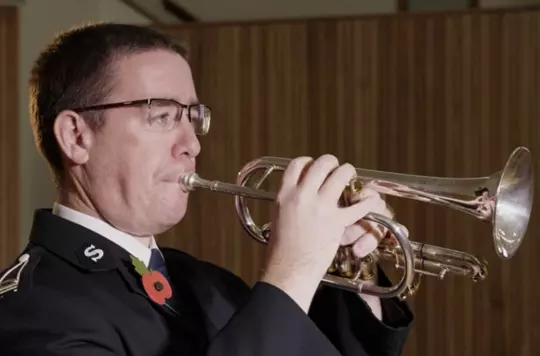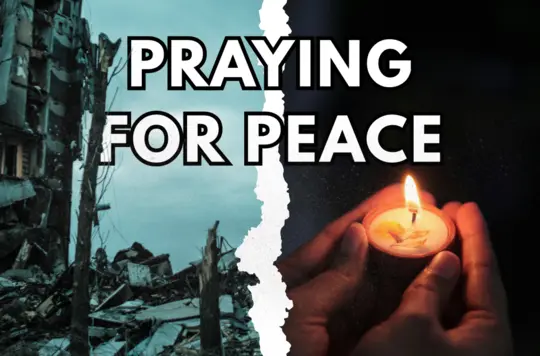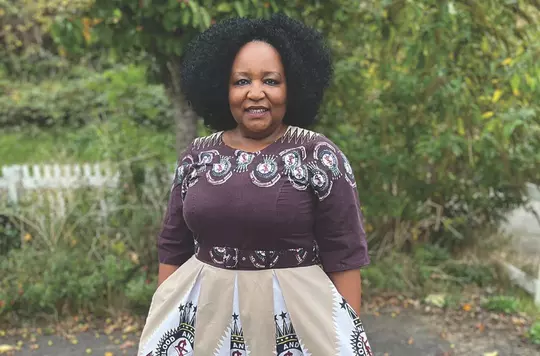11 November 2022
Being an 'ambassador of goodwill' in times of war and peace
George Tanton

George Tanton explores how British Salvationists offered fellowship to German prisoners of war during the Second World War.
‘The Salvationist is first and foremost … an ambassador of goodwill,’ wrote All the World editor Brigadier Reginald Woods in 1945 on the subject of The Salvation Army’s post-war relief work. ‘Without goodwill, nothing useful can be accomplished among peoples who have suffered so deeply from racial and ideological antagonisms.’
At the end of the Second World War, it was estimated that there were 400,000 German prisoners of war (PoWs) in Britain who were awaiting repatriation. Abiding by The Salvation Army’s commitment to political neutrality, British Salvationists from the beginning of the conflict had extended a hand of peace and friendship to captured German soldiers.
By 1947, hundreds of German PoWs had been included in many communities across Britain thanks to the spirit of goodwill shown by Salvationists. ‘The Salvation Army all over the country, have taken upon themselves the job of brightening the lives of these prisoners of war,’ the Dover Express reported on 14 March that year.
The Gloucestershire Echo reported on 21 April 1947 that Cheltenham Citadel had hosted a classical music performance by the PoW camp orchestra from Leckhampton Court for 500 people. Afterwards, ‘over 150 PoWs were entertained to tea’, the report added, explaining that the corps had been regularly reaching out to camps in the area. ‘The Citadel band has been on three occasions to PoW camps in the district, and on the last occasion took with them the Young People’s Percussion Band.’
Salvation Army corps also used sport to show goodwill to German prisoners of war. The Lynn News and Advertiser in June 1947 reported that a youth football team from Downham Market Corps had played a return match against the Shouldham German PoW camp second XI and had drawn 2-2.
Evangelism was also key to The Salvation Army extending the hand of friendship to prisoners of war. The Daily Mirror ran a short column on 1 July 1947 titled ‘PoWs join ranks of Salvation Army’. It was reported that at Canterbury Temple 11 had been enrolled as soldiers. Three of these men had even declared that their conversion was the result of an open-air meeting.
Major Ingham, the corps officer at Canterbury Temple at the time, spoke to the newspaper and explained that the PoWs were ‘very sincere’ in their enrolment. He said: ‘I meet them privately once a week and talk to them through an interpreter.’ The report concluded: ‘At meetings of the Temple one young prisoner, known to other members of the congregation Salvationist as Willie, sings hymns in English and another prays in German.’
The Dundee Courier in December 1947 ran a similar column titled ‘German PoW chooses Salvation Army’. It reported that, at Perth Citadel, 27-year-old prisoner of war Eric Fuhlrott had offered to play the piano for 150 children. The report explained he had ‘come to this country in 1944, having been captured while serving in the [German] army’ and that ‘he thought so much of Scotland he decided The Salvation Army was a means of expressing his gratitude’.
Upon a visit made by Dover Corps Band to 250 German PoWs at Langdon in 1946, the Dover Express reported that: ‘[Through] the German translator, Major Goldsmith, of The Salvation Army, spoke a few words to the PoWs, saying that nationality did not matter in God’s sight [and] all were brothers in Christ.’ Major Goldsmith’s message of serving others without discrimination remains central to the Army’s mission today.
As Salvationists commemorate those who have fought and died in conflicts around the world, it is also important to remember that prisoners of war, as well as civilians, are victims of human suffering too. In the past year the experiences of PoWs in the Russia-Ukraine conflict have been seen and heard on the news, inspiring many to pray for their safety and for mercy and decency to be shown by their captors.
This year also marks 40 years since the end of the Falklands conflict. Archive footage of young Argentine soldiers – nearly all of them conscripted – huddled together to stay warm with fear etched into their faces, has come to encapsulate that conflict in modern memory.
JRR Tolkien, a Catholic and a veteran of the First World War, wrote in The Lord of the Rings of one character looking upon the face of an enemy: ‘He wondered what the man’s name was and where he came from; and if he was really evil of heart, or what lies or threats had led him on the long march from his home; and if he would rather have stayed there in peace.’ This quote could be applied to the Russian soldiers being conscripted into the conflict in Ukraine.
From relief work in Eastern Europe to supporting people displaced by the conflict elsewhere, Salvationists remain first and foremost ambassadors of goodwill.
Written by

George Tanton
Editorial Assistant
Discover more

A 7-day prayer plan for Remembrance Sunday
As we journey through this annual time of remembrance, take seven days to pause and connect with God in prayer.

Praying for Peace
Prayer resources to lead prayers for peace during gathered worship, in a meaningful and transformative way.

Tightening budgets: ‘We all need to look out for each other’
Debt adviser Debbie White shares her experience of helping people with their finances and offers four budgeting tips we could all consider.

'I am not a tick box'
Joyce Chimkupete shares her journey towards accepting a leadership position at her corps.